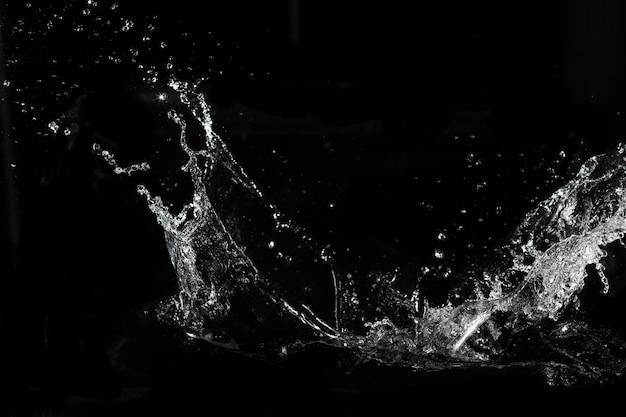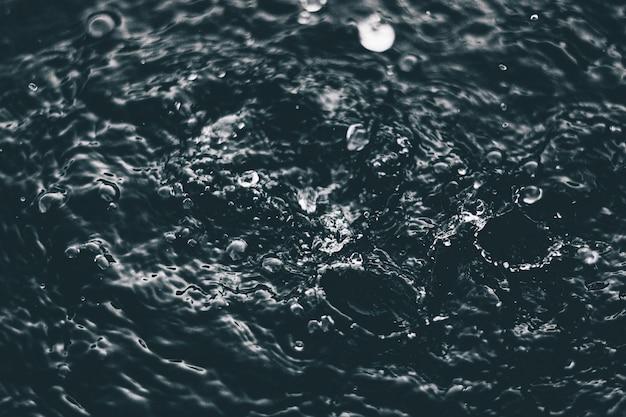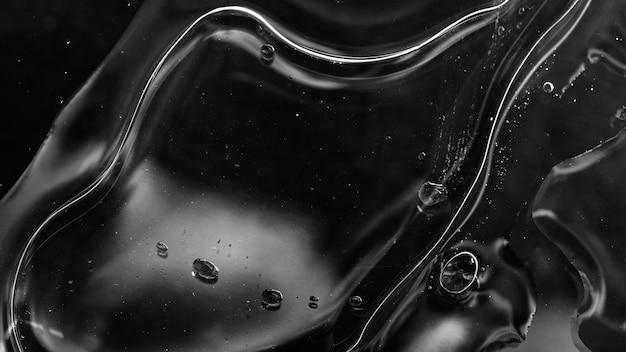When it comes to water damage, most people are familiar with the concept of “clean” water from a burst pipe or rainfall. However, not all water damage is the same. Black water is a term that refers to the most hazardous and contaminated type of water damage. It contains harmful materials such as dirt, debris, and bacteria that can cause severe health problems.
Many homeowners are not aware of the potential dangers of black water and the appropriate measures that should be taken when it occurs. In this blog post, we will explore all aspects of black water damage, from its types and symptoms to its cleaning procedures.
The post will also cover everything from the difference between black and gray water, how to spot blackwater fever, and if black water is hazardous to human health. We’ll also provide insights into the cleaning process for black water damage and ways to effectively prevent and mitigate the damage.
So if you’re dealing with water damage, or just want to gain knowledge about black water damage, stick around and read on. We’ll help you understand the importance of black water clean up and provide you with expert tips to ensure a safe and effective clean-up process.
Black Water Clean Up: How to Clean Up After a Flood
If you have ever experienced flooding, then you know how devastating it can be. Floodwater is usually contaminated with hazardous substances such as chemicals, bacteria, and other pollutants. Therefore, cleaning up after a flood can be a hazardous task, especially when the floodwater is black water.
What is Black Water
Black water is wastewater that contains fecal matter, pathogens, and other types of contaminants. It is usually a byproduct of sewage backup, floodwater, or toilet overflow. Black water is a highly contaminated fluid that poses a severe health risk to humans and animals.
Why is Black Water Cleanup Important
Black water cleanup is crucial because the water contains harmful bacteria, viruses, and parasites that can cause health problems. These contaminants can cause skin infections, respiratory problems, gastrointestinal issues, and other severe health problems. Therefore, it is essential to clean up black water as soon as possible to prevent any health hazards.
How to Clean Up Black Water
If you want to clean up black water, it’s essential to follow these guidelines:
-
Wear Protective Gear: Before you start cleaning the black water, it’s essential to wear protective gear such as gloves, masks, and goggles.
-
Remove Contaminated Items: If any furniture, fabrics, or other materials are contaminated with the black water, they should be removed and disposed of safely.
-
Clean with Disinfectant: After removing all the contaminated items, clean the floor and other surfaces with a disinfectant solution.
-
Dry the Affected Area: It’s essential to dry the affected area as quickly as possible to prevent mold growth.
-
Dispose of Waste Safely: Dispose of all waste materials in sealed plastic bags. Ensure that the garbage is collected and disposed of properly.
Black water clean up is a hazardous task that requires careful planning and execution. It’s imperative to wear protective gear, dispose of waste safely, and clean the affected surfaces with a disinfectant solution. Following these guidelines will help prevent any health hazards associated with black water. Remember to be cautious and safe when dealing with black water to prevent any health problems.
Gray Water: What is it and How to Clean it Up
Many homeowners hear the term “gray water” and assume it means dirty water that needs to be disposed of immediately. However, that’s not necessarily the case. Gray water is actually the term used to describe relatively clean wastewater that comes from sources like your washing machine, shower, and bathroom sink. Unlike black water, which comes from your toilet and is full of human waste, gray water may contain traces of soap and other relatively harmless substances.
Sources of Gray Water
Gray water can come from a variety of sources, including:
- Washing machines: If you have a top-loading washing machine, it likely uses around 40 gallons of water per wash cycle. If you have a front-loading machine, it uses significantly less, around 20 gallons per cycle.
- Showers and baths: Depending on the length of your shower, you could use anywhere from 10 to 50 gallons of water. Baths use even more water.
- Bathroom sinks: While you may not be using your bathroom sink as much as your shower, any water that goes down the drain counts as gray water.
Cleaning Up Gray Water
Since gray water doesn’t contain nearly as many harmful substances as black water, cleaning it up is significantly easier. That being said, there are still some precautions you should take to ensure you’re doing it safely.
Step 1: Determine the Source
The first step in cleaning up gray water is to determine where it’s coming from. If the water is coming from your washing machine, for example, you’ll want to turn off the valve that supplies water to it. If the water is coming from your shower or sink, you may need to shut off the main water valve to your home.
Step 2: Collect the Water
Next, you’ll want to collect the water and contain it in a bucket or other container. You can reuse this water for tasks like flushing the toilet or watering your plants.
Step 3: Dispose of the Water
Once you’ve collected the water, be sure to dispose of it in a safe and responsible manner. You can pour the water directly onto your lawn or garden, or you can filter it and reuse it for other tasks around the house.
In conclusion, gray water isn’t nearly as dangerous as black water, and it can be a valuable resource with a little bit of effort. By following the steps outlined above, you can ensure that you’re disposing of gray water in a safe and environmentally friendly way.
Blackwater Fever: Understanding the Symptoms and Treatment
Blackwater fever is a serious medical condition that results from the destruction of red blood cells. It is also known as hemoglobinuria, and it can be caused by a variety of factors, including infections like malaria or by the use of certain medications.
Symptoms of Blackwater Fever
The symptoms of blackwater fever can vary depending on the severity of the condition. Some of the most common symptoms of this illness include:
- Dark urine
- Jaundice
- Abdominal pain
- Weakness
- Fatigue
- Headaches
- Anorexia
- Chills
- Fever
Symptoms often develop suddenly and can be severe, leading to complications and even death in some cases.
Treating Blackwater Fever
The treatment of blackwater fever typically involves addressing the underlying cause of the condition. This might include treating the infection causing the fever or discontinuing the use of any medications causing the destruction of red blood cells.
In some cases, more aggressive treatment may be required, such as blood transfusions or intravenous fluids to help manage the symptoms and prevent complications.
Prevention of Blackwater Fever
Preventing blackwater fever mainly involves avoiding the risk factors that can cause the condition. For example, if you’re traveling to a region with a high risk of malaria, it’s essential to take preventive measures such as insect repellent, mosquito nets, and antimalarial medications.
Additionally, it’s critical to avoid medications that can cause hemolysis, such as certain antibiotics and quinine derivatives.
Blackwater fever is a serious illness that requires prompt recognition and aggressive treatment. By understanding the risk factors and taking preventative measures, such as using insect repellent and avoiding certain medications, you can reduce your risk of developing this condition.
If you experience any symptoms of blackwater fever, such as dark urine or abdominal pain, it’s essential to seek medical attention immediately. Proper treatment can help manage symptoms, prevent complications, and improve your chances of a full recovery.
Black Water Damage
Many people are unaware of the severe damage that black water can cause. In short, when black water enters your home, it’s bad news. Black water is wastewater that contains human waste, bacteria, harmful chemicals, and other contaminants. This type of water is unsanitary and can cause a lot of damage to your home.
Causes of Black Water Damage
Black water damage can be caused by several factors, including:
- Hurricanes, typhoons, and other severe storms
- Municipal water supply failures
- Sewage backups and overflows
- Plumbing leaks
Effects of Black Water Damage
Black water damage can be catastrophic, affecting your home and health in the following ways:
- Contamination of porous materials such as drywall, carpets, insulation, and furniture
- Structural damage to your home’s foundation, walls, and floors
- Risks of exposure to dangerous diseases, bacteria, and other harmful contaminants
- Unpleasant odors throughout your home

How to Respond to Black Water Damage
Firstly, if you suspect black water damage in your home, evacuate immediately and contact a professional restoration company. They will inspect your property and provide you with an estimate of the damage. Remember not to touch anything, including the water itself, without protective gear as it can cause severe health issues.
In conclusion, black water damage is a serious issue that should never be overlooked. Prevention is always better than a cure, so always take steps to prevent black water from entering your home.
Is Black Water Hazardous
If you’re wondering whether black water is hazardous or not, the answer is YES! Blackwater is highly contaminated water that contains raw sewage and other hazardous materials, making it unsafe for humans and animals alike. When you come into contact with black water, it can lead to serious health problems.
Health Risks Associated with Black Water
There are many health risks associated with black water, including:
Viral and Bacterial Infections
Black water contains harmful viruses and bacteria that can cause serious infections. These infections can cause symptoms such as diarrhea, fever, vomiting, and abdominal pain.
Skin Irritations
Contact with black water can cause skin irritations or rashes. These rashes can be itchy, painful, and uncomfortable.
Respiratory Problems
Exposure to black water can also lead to respiratory problems such as coughing, wheezing, and shortness of breath. This is because black water can contain harmful gases such as methane and hydrogen sulfide.
In conclusion, black water is hazardous and should be treated with caution. If you come into contact with black water, it’s recommended that you seek medical attention immediately. Also, it’s important to ensure that black water is cleaned up properly to prevent the spread of disease and to protect the environment.
How is Black Water Cleaned
If you have ever wondered what happens to black water after it is collected from your home’s toilet, then you have come to the right place. In this section, we will discuss how black water is cleaned and made safe for disposal.
The Wastewater Treatment Process
Black water is collected in a septic tank or a sewer system and then transported to a wastewater treatment plant. The wastewater treatment process typically involves several stages, including:
1. Primary Treatment
During this stage, the incoming raw sewage is screened to remove large solids and debris. The wastewater then passes through a grit chamber, where sand, gravel, and other small particles settle to the bottom.
2. Secondary Treatment
In this stage, the wastewater undergoes a biological process where microorganisms break down organic matter in the water. This process removes most of the dissolved and suspended solids, as well as bacteria and viruses in the water.
3. Tertiary Treatment
This is the final stage of the wastewater treatment process, and it involves removing any remaining contaminants from the water. This may include using chemical treatments to kill any remaining bacteria or viruses, as well as using physical methods to filter or disinfect the water.
Disposal of Treated Water
Once the black water has been fully treated, it is safe to dispose of in different ways. The most common method of disposal is to discharge the treated water into a nearby water body, such as a river or ocean. Some wastewater treatment plants may also reuse the treated water for irrigation or industrial purposes.
The process of cleaning black water is a complex one that involves multiple stages of treatment. However, it is essential to ensure that the water is safe for disposal and does not pose a risk to human health or the environment. With proper treatment, black water can be safely and efficiently cleaned, making it possible to support the health and well-being of people and communities around the world.


